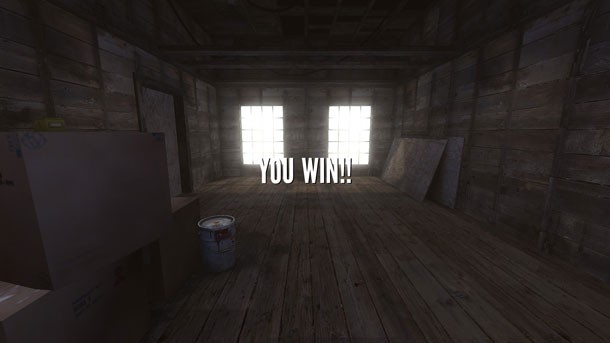The Stanley Parable's Creators Talk About Choice And Stumbling Into Success

We enjoyed The Stanley Parable and its unusual take on storytelling. If you haven't played the game, a narrator provides a bit of story at the beginning, and then comments on the player's actions from there on out. The game's creator spoke at a GDC panel about what happens when a game removes the concept of traditional challenge from the equation, and what's possible next.
As Davey Wreden, the creator of the original mod describes it, video games are generally about a series of A or B decisions. One might provide immediate results, while the other could have benefits that are only seen later. Wreden says the two share one common thing, in that the decisions are aimed at overcoming a challenge. What happens when you remove the challenge, and still provide those A or B decisions? According to Wreden, those choices can be every bit as meaninful to players, as long as the results are expressed to players immediately. How? Fortunately, he broke his talking points down in an amusing series of points:
How do we do this?
"1) I have no idea." As a game maker, Wreden himself is excited about the possibility of being surprised, and of seeing how people deal with the challenge of removing traditional challenge.
"2) The choices have to actually, you know, be fun or engaging to actually select between."
"3) There should be lots of positive ways to choose between these options."
Galactic Cafe's William Pugh then took over, showing off a series of slides from the game that illustrated the points.
One of the earliest decisions that players make comes when players encounter a set of doors. The narrator says that Stanley went through the left door. Pugh says some players will automatically go through the door, since that's what they think they're supposed to do. Others sprint through the right door, thinking they're rebelling. And yet another type of player will stand immobile for a while before ultimately acting.
With the phone ending, players faced a timed challenge. Would they answer a ringing phone? Some would, others wouldn't. As with all of the choices in the game, there wasn't a "correct" answer, only one that led to a different outcome.
After seeing a few other endings, Pugh showed the Stanley Dies screen, which is a black screen with various stats on it. He says this ending in particular plays off the fear that some players have of missing game content. Another ending has players answering the question "Do you like Stanley Parable" with a yes or no switch. Pugh says players felt like they were being watched or having their responses recorded somehow, which possibly affected the way they answered.
Finally, there's the burning baby ending, where a cardboard cutout of a baby moves on a track toward a fire, unless players press a button and intervene. Pugh says this ties everything together, with timing and an appeal to authority meeting up against a lack of challenge.
Wreden ended the talk by saying that they didn't really think about any of these things when they were making the game; they came through as happy accidents.
There you have it. The Stanley Parable summed up in a GDC talk.

Get the Game Informer Print Edition!
Explore your favorite games in premium print format, delivered to your door.
- 10 issues per year
- Only $4.80 per issue
- Full digital magazine archive access
- Since 1991









